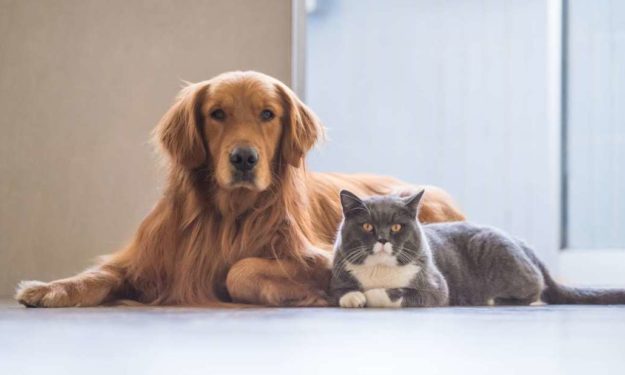Why Is My Pet Having Trouble Breathing?

Written by: Rebecca Brockman, DVM, MS
If your pet is having trouble breathing, it is always a good idea to have a veterinarian perform a physical examination. Pets can have many different reasons for increased panting, coughing, or appearing to have breathing issues. These range from primary respiratory issues to heart disease to systemic illnesses involving other internal organ systems. When you arrive at a veterinary emergency hospital, the team will potentially bring your pet to an intensive care treatment area to start the physical examination, obtain vitals, and determine if your pet needs supplemental oxygen. The veterinarian will listen to your pet’s heart and lungs. Then, we will continue a thorough physical exam to try and determine the cause for the breathing difficulties.
You are your Pet’s Voice
While an emergency veterinarian starts the physical examination, a member of our technician team will ask questions about your pet’s history. You are your pet’s voice, your pet’s advocate and the only resource other than diagnostic tests that our medical team have in order to determine the cause of this change. The information you give can make a difference in the treatment and types of diagnostics that are run. We will ask questions to help determine if something happened recently to cause the abnormal breathing or if this is a chronic issue. We will want to know if your pet has any prior medical history or is currently taking medications.
Diagnosis
Once the veterinarian completes the physical exam, they will talk with you about tests they would like to run to help determine the cause for your pet’s trouble breathing. Likely recommendations include:
- Chest x-rays
- Blood work
- Possibly an ultrasound of the chest and abdomen.
- An EKG
- Blood pressure monitoring
- A sedated oral examination
Infection
We will try to determine if your pet’s clinical signs are due to an infection (bacterial, viral, parasitic, or fungal) in either the upper airways or lungs (which would be pneumonia). We will also consider inflammatory conditions, anatomical problems such as laryngeal paralysis (where the focal folds do not open enough or collapsing trachea (a problem with the cartilage rings in the trachea), and even an airway blockage. We have had dogs present to Emergency for choking on a treat or toy they tried to swallow.
Heart disease
Heart disease is another cause for pets to have trouble breathing or to start coughing. When the heart is unable to pump blood efficiently, fluid backs up and accumulates in the lungs known as pulmonary edema. In cats, we often see fluid accumulate in the chest outside of the lungs known as pleural effusion. Both of these require immediate medical intervention.
systemic illnesses
Systemic illnesses that affect the kidneys, liver, or adrenal glands may cause your pet to pant or breathe heavily. Any known trauma that may cause pain or trauma to the chest can cause a pet to pant or have trouble breathing. Even problems in the abdomen may lead to pressure on the diaphragm and cause your pet to pant or breathe heavily.
Treatments
Treatments to help your pet will be determined based on the physical exam and the results of the diagnostic tests. First and foremost, we want to make sure your pet is kept comfortable. We will do our best to get you answers to help you make an informed decision in how to proceed with treating your cat or dog.
Your pet may be able to go home the same day or may need to be hospitalized in our ICU for a day or longer depending on the cause for the trouble breathing. We may also consult with some of our specialty services such as the Cardiology Service, Internal Medicine, or Surgery Service. Ultimately, our goal is to get a diagnosis to best help your pet and return him or her home to you and your family.